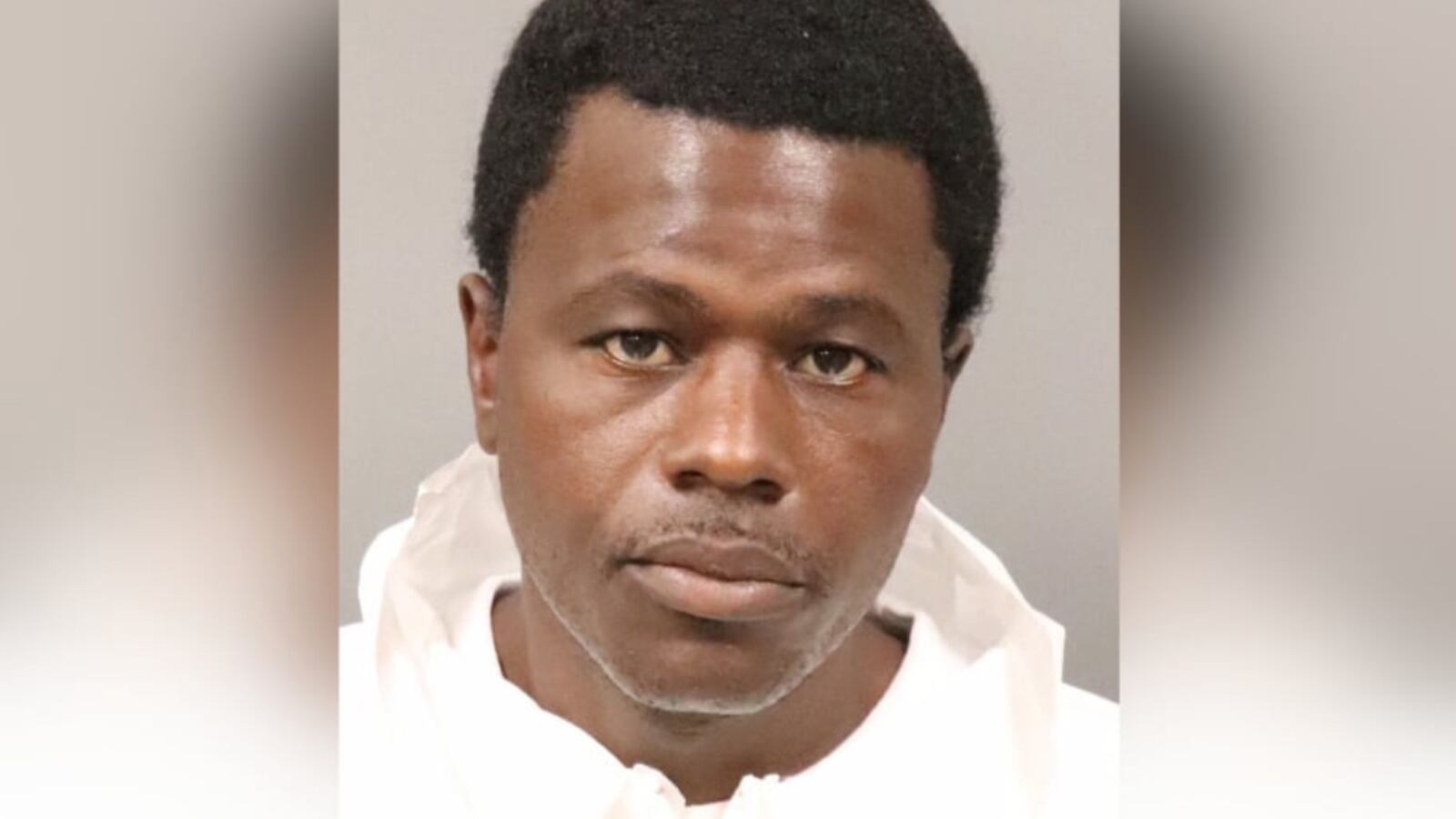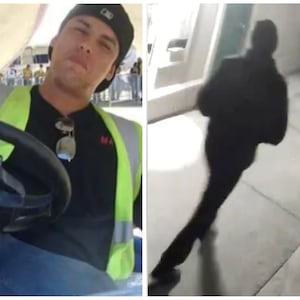Accused serial killer Wesley Brownlee on Tuesday was arraigned on three counts of murder and an assortment of firearms charges as the families of half a dozen victims continue to mourn.
The proceeding was overseen by San Joaquin County Superior Court Judge Ronald Northup, who ordered Brownlee held without bail.
Prosecutors revealed in court that cellphone data placed Brownlee at or near the scene of at least three of six murders he is suspected of carrying out, and that Brownlee had a so-called ghost gun—that is, a firearm lacking a serial number—on him when he was arrested. Investigators first identified Brownlee as a suspect thanks to tips from the public, and set up surveillance to track him, according to Stockton Police Chief Stanley McFadden.
“There are some people who are simply too dangerous to share the streets with you and I,” San Joaquin County District Attorney Tori Verber Salazar told reporters at a news conference following Brownlee’s arraignment.
“There are two more murder victims and an attempted murder,” and additional charges are expected to be added, she said, noting that investigators are processing additional evidence that will let them move forward with the remaining cases.
Verber Salazar declined to say if Brownlee knew any of the victims personally.
News cameras were forbidden by the judge to broadcast live from inside the courtroom, which reportedly became so crowded that officials stopped letting people in.
Brownlee, 43, was arrested Oct. 15 by police in Stockton, California, where he is suspected of fatally shooting five people, with a sixth death occurring in Oakland, about 70 miles away, over the past 18 months. All of the victims were homeless at the time of their murders. Authorities said Brownlee was “out hunting” for his next victim when he was captured just a few weeks after the most recent shooting.
The first victim was 39-year-old Juan Miguel Vasquez Serrano, who was shot dead in April 2021. The next came more than a year later, on July 8, 2022, when Paul Yaw, 35, was killed in a public park. Salvador Debudey Jr., 43, was third, gunned down in the parking lot of a Popeye’s restaurant on Aug. 11. Victim number four, 21-year-old Jonathan Hernandez Rodriguez, was killed on Aug. 30. Juan Carlos Carranza-Cruz, 52, and Lawrence Lopez Sr., 54, died six days apart, on Sept. 21 and 27. The only known survivor, 46-year-old Natasha LaTour, was shot 10 times outside her tent in April 2021, less than a week after Serrano’s murder.

Police have not yet determined a motive in the seemingly senseless killings, which cops initially said were linked to one another by ballistics evidence, but have described Brownlee as having been on a “mission” to kill. None of the victims appeared to have been robbed, as their wallets and any valuables were left behind.
Brownlee grew up in Oakland, just a few blocks from where the first victim died.
Reached by phone, Brownlee’s cousin, trucker Johnny Brownlee, told The Daily Beast that he was stunned to learn of the charges against his relative.
“I thought he was driving trucks, working, like I do,” he said.
Brownlee has a criminal history dating back to May 1994, when he was arrested at the age of 14 on charges that he and two other boys sexually assaulted a 14-year-old girl, according to court records obtained by The Mercury News. Six months later, Brownlee was charged with selling cocaine to an undercover cop and sentenced to house arrest, KTVU reported.
The following year, Brownlee’s older brother Dale was shot dead in a “drug-related” murder, according to court filings reviewed by the outlet. Brownlee reportedly became “very distressed” over this, and dropped out of high school in the 11th grade after being diagnosed with a learning disability.
In 1997, Brownlee was charged with possession of crack, and received probation. It was revoked when he was arrested again on drug charges, and sentenced to two years in state prison. Brownlee’s next arrest came in 2014, when police in Alameda County busted him for selling drugs. After pleading no contest, Brownlee served a stint in jail and three years probation, court records show. His record is otherwise peppered with low-level infractions, such as speeding, failure to obey traffic signs or signals, and a 2019 charge of failure to stop at a port of entry.
Finding a fair and impartial jury to decide Brownlee’s fate will be a challenge, according to San Francisco criminal defense attorney Julia Jayne.
“When a case has notoriety, especially in a specific community where a number of people are affected by the crimes, it will be challenging to find jurors who aren’t biased against the defendant before they have heard any evidence,” Jayne, who is not involved with Brownlee’s case, told The Daily Beast. “It could trigger a change of venue, but even then, when a case gets national attention, that becomes continually difficult.”
An insanity defense “is not a given,” Jayne added, describing it as a “complex process.” Going that route can take “weeks, if not months,” San Diego criminal defense lawyer David P. Shapiro told The Daily Beast. (Shapiro is also not involved with the Brownlee case.)
Watching the proceedings from afar in Texas, where she now works as a registered nurse, victim Paul Yaw’s mom just hopes her son isn’t forgotten.
“I want people to just know that Paul was a good kid,” Greta Bogrow told The Daily Beast earlier this month, noting that her other son died as a baby. “He was a fun boy, and he was always helping other people,” she said. “He was a big kid, he was six-foot-three, and he was always taller than everyone in this class. And when he would see people getting picked on by other kids, he would always stand up for the little guy.”
Brownlee is due back in court Nov. 14.






